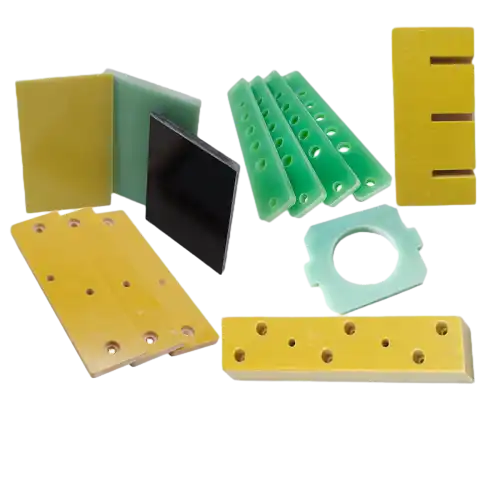Why Is Heat Resistance Critical for Insulation Sheets?
Heat resistance is a fundamental property that determines the effectiveness and reliability of insulation sheets across various applications. Let's explore the key reasons why heat resistance is so crucial:
Maintaining Insulative Properties at High Temperatures
Insulation sheets with high heat resistance can maintain their thermal insulative properties even when exposed to elevated temperatures. This characteristic is essential in applications where consistent thermal protection is required, such as in industrial furnaces, automotive components, or aerospace equipment. Without adequate heat resistance, insulation sheets may lose their effectiveness, leading to increased energy consumption and potential safety hazards.
Preventing Material Degradation
Heat-resistant insulation sheets are less prone to degradation when subjected to high temperatures. This resistance to thermal breakdown ensures that the material maintains its structural integrity and functional properties over extended periods. In contrast, insulation sheets with poor heat resistance may deteriorate rapidly, leading to reduced performance, increased maintenance costs, and potential system failures.
Enhancing Safety in High-Temperature Environments
In applications where fire safety is paramount, such as building construction or electrical systems, heat-resistant insulation sheets play a crucial role. These materials can help prevent the spread of fire, reduce the risk of electrical short circuits due to insulation breakdown, and provide valuable time for evacuation in emergency situations. The ability of insulation sheets to withstand high temperatures without combusting or releasing toxic fumes is a critical safety feature in many industries.
Thermal Stability and Long-Term Material Durability
The thermal stability of insulation sheets is closely linked to their long-term durability and performance. Let's examine how heat resistance contributes to the longevity and reliability of these materials:
Resistance to Thermal Cycling
Insulation sheets with high heat resistance can better withstand thermal cycling – the repeated heating and cooling of materials. This property is particularly important in applications where temperature fluctuations are common, such as in solar panels or industrial process equipment. Heat-resistant insulation sheets maintain their dimensional stability and insulative properties even after numerous thermal cycles, ensuring consistent performance over time.
Prevention of Thermal Decomposition
High-quality, heat-resistant insulation sheets are engineered to resist thermal decomposition, which is the breakdown of materials due to heat exposure. This resistance helps preserve the chemical structure and physical properties of the insulation, preventing the formation of voids, cracks, or other defects that could compromise its performance. By maintaining their integrity at elevated temperatures, these insulation sheets provide reliable protection and energy efficiency throughout their service life.
Minimizing Thermal Aging Effects
Thermal aging is a process where materials gradually degrade due to prolonged exposure to heat. Insulation sheets with superior heat resistance exhibit slower thermal aging rates, which translates to extended service life and reduced maintenance requirements. This characteristic is particularly valuable in applications where frequent replacement of insulation materials would be costly or impractical, such as in large-scale industrial facilities or inaccessible areas of buildings.
Impact of Temperature on Electrical and Mechanical Properties
The heat resistance of insulation sheets not only affects their thermal performance but also influences their electrical and mechanical properties. Understanding these relationships is crucial for selecting the right insulation materials for specific applications:
Temperature-Dependent Electrical Resistance
As temperature increases, the electrical resistance of insulation sheets can change significantly. Heat-resistant materials are designed to maintain their dielectric strength and insulative properties even at elevated temperatures. This characteristic is essential in electrical applications, where consistent insulation performance is critical for safety and equipment reliability. Insulation sheets with poor heat resistance may experience a dramatic decrease in electrical resistance at high temperatures, potentially leading to electrical failures or safety hazards.
Mechanical Strength and Dimensional Stability
The mechanical properties of insulation sheets, such as tensile strength, compressive strength, and dimensional stability, can be greatly affected by temperature. Heat-resistant materials are engineered to maintain their mechanical integrity under thermal stress, preventing deformation, warping, or structural failure. This property is particularly important in applications where insulation sheets must withstand physical loads or maintain precise dimensions, such as in aerospace components or precision manufacturing equipment.
Thermal Expansion and Contraction
Insulation sheets with high heat resistance often exhibit lower coefficients of thermal expansion, meaning they experience less dimensional change when subjected to temperature fluctuations. This property is crucial in applications where tight tolerances must be maintained, or where differential expansion between materials could lead to stress and potential failure. By minimizing thermal expansion and contraction, heat-resistant insulation sheets help ensure the long-term reliability and performance of the systems they protect.
Conclusion
The heat resistance of insulation sheets is a critical factor that significantly influences their performance, durability, and reliability across various applications. From maintaining insulative properties at high temperatures to ensuring long-term material stability, heat resistance plays a vital role in the effectiveness of thermal management solutions. By understanding the impact of temperature on the electrical and mechanical properties of insulation materials, engineers and designers can make informed decisions to optimize energy efficiency, safety, and overall system performance. As technology advances and new challenges emerge, the development of innovative, heat-resistant insulation sheets will continue to drive progress in thermal management and energy conservation.
Contact Us
For more information about our high-performance insulation sheets and how they can benefit your specific application, please contact us at info@jhd-material.com. Our team of experts is ready to assist you in finding the ideal thermal management solution for your needs.






